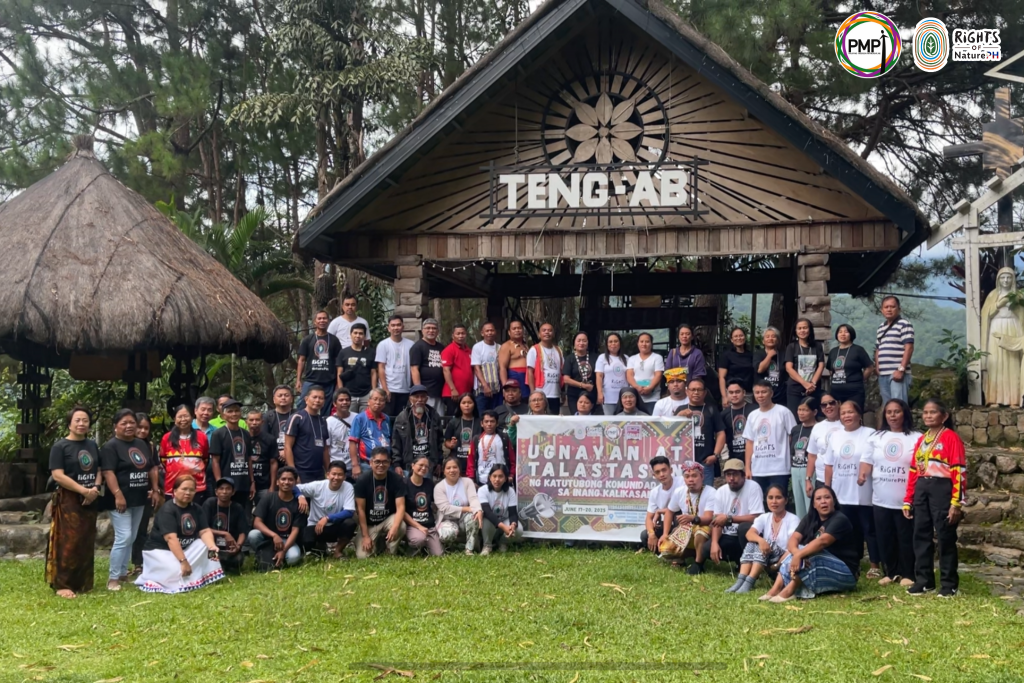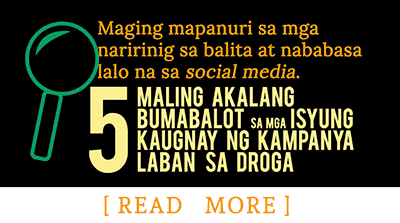Bontoc, Mountain Province – A Bontoc Declaration was released titled “A Declaration of Stewardship and Sacred Responsibility,” affirming the collective commitment of over 60 indigenous community leaders and advocates from across Luzon, Visayas, and Mindanao to defend the Rights of Nature, protect ancestral domains, and honor their sacred duty to care for the Earth. This historic event was held in Bontoc-Lagawe, Tengab Mountain Province, from June 17 to 20, 2025, focusing on a national conversation among indigenous peoples with the theme “Ugnayan at Talastasan ng Katutubong Komunidad Ukol sa Inang Kalikasan.”
This event provided a space for collaboration and the sharing of indigenous wisdom, knowledge systems, and practices, as well as the emerging global advocacy for recognizing nature’s inherent rights—a concept deeply embedded in indigenous beliefs, customs, and traditions. The gathering was graced by Fr. Apol Dulawan, MJ, IP Apostolate Director – Apostolic Vicariate of Bontoc, Lagawe and Most Rev. Valentin Dimoc, DD, the Chairperson of Episcopal Commission of Indigenous Peoples – Catholic Bishops Conference of the Philippines (CBCP) who both emphasized that indigenous communities embody lifestyles rooted in balance with nature and offering critical insights for planetary sustainability.
Participants reflected on the state of their respective environmental challenges and concerns. They shared stories of environmental impacts, territorial disputes, and many forms of environmental human rights violations in their ancestral lands. For these communities, the fight to defend nature is not only ecological —it is deeply personal and cultural.
“It is unfair to be marked as one of the drivers of forest or land degradation, when in fact it is the corporations mining, logging, or quarrying that inflict significant harm to our environment. And when we fight for our lands, we are called communists or subversives,” opined by Sir Rafe Laluma, an indigenous leader from Antique.
The participants overwhelmingly affirmed that their activities, like Kaingin, is not the cause of environmental degradation. They assert that their Indigenous Knowledge Systems and Practices (IKSPs) are, in fact, helpful and vital tools in protecting their territories and sustaining their ways of life.
Participants vowed to unite against all forms of environmental destruction such as activities outside of indigenous traditions, deforestation, mining, pollution, land-use changes, land grabbing, and such other threats to their way of life. They commit to participate and promote citizen science to engage in research and environmental monitoring that directly impacts their land and livelihood. The participants recognize that citizen science is relevant when embedded within their own system of indigenous knowledge and integrated with scientific methods, thereby strengthening and signifying mutual respect and collaboration.
“The Rights of Nature is redefining our modern human relationship with nature, and our indigenous peoples can help us recover the right relationship with Mother Nature, one that is deeply rooted and connected with her, Yolanda Esguerra, National Coordinator of PMPI, opined.
Nathalia Greene, Executive Director of the Global Alliance for the Rights of Nature (GARN) said that “we know, especially the indigenous peoples, that rivers, forests, oceans have rights. It is something we already understand. These are natural laws. And we are part of them. So we must act now, and our efforts to recognize the rights of nature give us a chance to do that.”
Casey Camp Horinek, a Councilwoman of the Ponca Tribe of Oklahoma and GARN Council of Elders, said that the event is a huge step in the right direction, as Mother Nature calls us and communicates with us in many ways to help her and come to her embrace. She invited the participants to join the global movement of indigenous peoples for the rights of nature.
The national conversation also highlighted similarities between the rights of nature campaign and the indigenous spiritual and cultural values, as well as indigenous governance and common stewardship, with Philip Largo Anghag and Atty. Macky Maderazo stated relevant input on IP cosmology and Governance of the Commons. The event underscored the urgent need to act boldly now, given the ongoing climate crisis, as emphasized by Ms. Candy Hidalgo, Deputy Coordinator of PMPI.
This whole three-day event is marked by an open dialogue and exchange, reinforcing the urgent need to safeguard the ecosystems, ancestral wisdom, traditional beliefs, and highlighting the vital role of the indigenous knowledge systems and practices, the indigenous political system and customary laws that sustain them.
The participants are combined partner communities of the Philippine Misereor Partnership Inc. (PMPI), the Rights of Nature PH (RoN PH) Movement, and the Episcopal Commission on Indigenous Peoples (ECIP), which helped organize the event. Gracing the occasion also, are international advocates of the Global Alliance for the Rights of Nature (GARN) and non-government organizations that are long-time and direct partners of some of the communities.
For media inquiries, please contact:
PMPI National Secretariat

